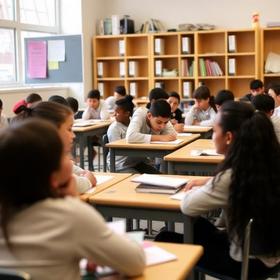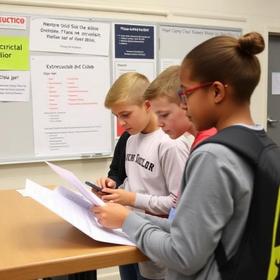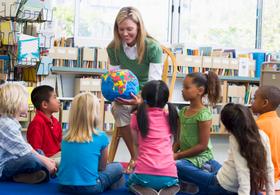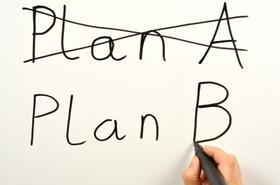This step in your school search process comes after you have narrowed down the list of schools which you are looking at. When you begin comparing schools on your short list, review what is being taught and how it is being taught. Instruction goes to the heart of what private schools are really all about. That is the main reason private schools exist. This is why we send our children to private school. We want certain subjects taught. More importantly, we want them taught in a certain way.
What we want our children taught generally exceeds any minimum requirements. The state department of department will require every school under its jurisdiction to meet certain minimum requirements. That is a given. For example, a high school student must receive a certain number of credits in English and mathematics in order to graduate. Private schools typically outpace any minimums specified by the state department of education.
Against this backdrop, take time to review the courses which are offered in the schools on your short list. Do these courses match your objectives and requirements? Do they offer the depth and intensity which you want your child to have? For example, Shakespeare is taught in many public high school English courses. Typically one play will be covered in an academic year. By contrast a private school English class will read two or three Shakespeare plays in a year. Because private school classes are small and the students focused on their academic work, much more can be accomplished. Set your expectations accordingly.
Does the school offer International Baccalaureate programs?
About thirty private schools offer a curriculum known as the International Baccalaureate. The IB is a comprehensive program which covers kindergarten through 12th grade. The diploma program is offered in high school. Like any other international diploma, the IB offers consistency and a high standard. As a result, IB diploma holders are accepted at colleges and universities around the world, because the diploma's standards and examination results are universally recognized. In this short clip, students at the British International School of Boston explain the advantages of taking the IB Diploma.
Does the school offer Advanced Placement courses?
The College Board's Advanced Placement courses and examinations are wide-spread in private and public high schools. They are popular because a score of 4 or 5 in AP exams virtually guarantees that you can skip first year/introductory courses in many subjects when you go to college. That saves both time and money. Taking some of the more difficult AP courses also indicates to the colleges admissions staff that you are serious about academic work. Like IB courses AP courses require properly trained teachers who understand both the course work and the nature of the examinations themselves. Look for the experience quotient when you review teachers and their credentials. This short video illustrates how educators at both secondary and tertiary levels view the AP program.
What teaching methods do they use?
Now we get down to the core, if you will, of why you are sending your child to private school. You want well-qualified, experienced teachers instructing your child. But you also want that indefinable something which gifted teachers possess. You will know it when you see it. Your child's eyes will light up when her teacher is that special kind of educator. How can you evaluate the way teachers actually teach? I f possible, arrange to observe a class. If that is not possibly, ask plenty of questions about the teaching methods used.
Tied in with the teacher methods is teaching style. Much depends on the subject being taught, of course. Sitting around a Harkness Table discussing some philosophical point in World History is one thing. Working in a lab environment is quite another. What you want to look for is the engagement of students with teachers. Because most class sizes are small in private school, that engagement should be a given. We parents expect our children to be involved in their learning. That is possible when class sizes are small because teachers can monitor the progress of every student. The Putney School expresses this concept better than I can:
"We are a small community with a 5:1 student-faculty ratio; there is no “back row” at Putney, and students have unrivalled access to the talented, diverse faculty. "
Another thing to look for is how the lessons relate to real life. For example, studying religion is important, but relating it to everyday life and the effects it has had throughout history is probably more important. Good teaching takes subjects and makes them relevant. Here is an example of that kind of inter-disciplinary approach which The Hill School uses:
"The Quadrivium Curriculum sets a new standard for interdisciplinary studies in science, math, engineering, computer science, and digital arts."
Is technology integrated into the curriculum?
Technology has enhanced teaching in so many ways over the past 20 years. We have progressed from teaching BASIC programming -remember that? - in the '90s to using the media-rich environment which is the modern Internet. The research tools available to high school students are simply amazing. The opportunities for exploration and collaboration are endless. Make sure the schools on your short list are cutting edge from a technology point of view. Schools should have robust WiFi connections available throughout the campus. Rye Country Day School makes the convincing case for an integrated approach to technology:
"The central goal of the program has always been to make the information processing power of the computer available to students whenever and wherever needed. This does not mean that laptops are or should be used all the time. Instead it means that the computer will be there whenever there is a benefit to be gained from its use. This approach is essentially no different than how pencil and paper have been deployed in schools. Pencil and paper are not used all the time, but we want them to be immediately accessible at all times."
In conclusion, remember that your child will have to compete in a global arena. It will not be the world which you and I encountered when you graduated from high school. Miss Porter's School expresses this concern aptly:
"Miss Porter's School educates young women to become informed, bold, resourceful and ethical global citizens. We expect our graduates to shape a changing world."
Make sure that the private schools which you are considering are capable of preparing your child for this new, very different world.
As you evaluate the curriculum and instruction at each school on your short list, use the questions above as guides. Each school will offer different answers and approaches. Find the school which matches what you are looking for as closely as possible and go for it.
Questions@ Contact me via Twitter @privateschl















